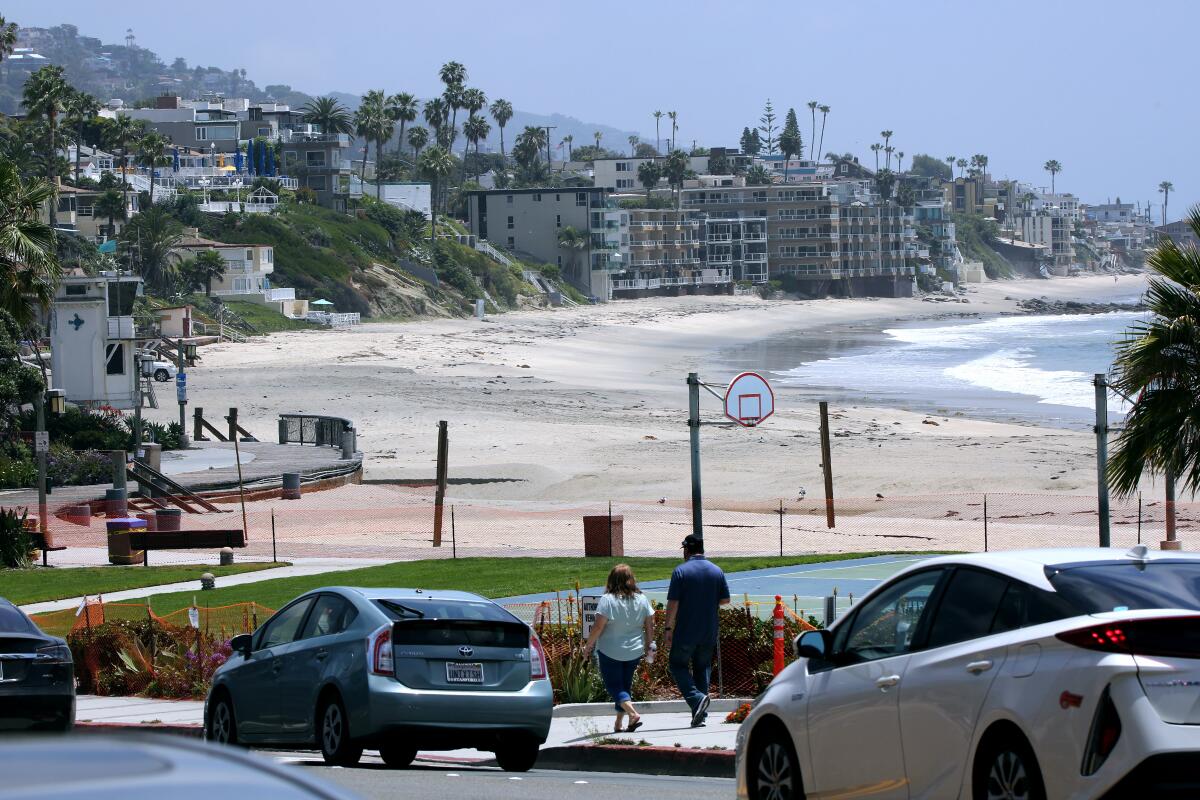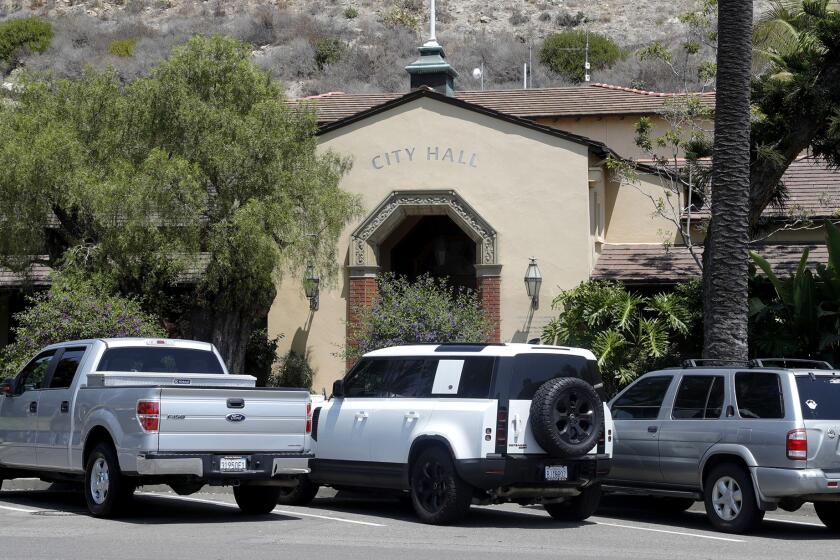Laguna Beach seeking affordability data for ADU rents

- Share via
Laguna Beach has begun seeking rent estimates from property owners with accessory dwelling units in the hopes that the data will show the city is closer to meeting its need for affordable housing stock.
The Regional Housing Needs Assessment, established by the Southern California Assn. of Governments, has called on the city to plan for 394 housing units — including 277 units for those with moderate to very low income — by the end of the sixth cycle, which began in 2021 and concludes in 2029.
“Our housing element assumed that part of RHNA count, especially affordable units, would come from ADUs,” Jennifer Savage, the city’s housing program coordinator, said in giving an update to the City Council on Oct. 22. “What we found over the last two years in our annual progress reports is that we have not been able to count any of the ADUs as affordable, and the reason for that is we don’t have evidence.
“This is a form that other cities have used. It is voluntary. It’s not required, but it does ask applicants to estimate the amount of rent that they would be charging on their ADU. We can then collect that over time, and for each annual progress report, evaluate that rent level, see if it qualifies as affordable, even if it is not deed-restricted as an affordable unit, and then count that towards our non-deed-restricted affordable housing units under RHNA.”
The rental estimate form, which was posted in August, inquires as to the intended use of an accessory dwelling unit, as well as how many occupants it will have, if cash rent will be collected, and who will be responsible for paying for utilities.
An additional 44 accessory dwelling units were completed in the city between January and Aug. 21, according to a staff report.
The housing and human services committee would provide oversight on a proposal to facilitate the establishment of a community land trust to address artist live-work space demand in town.
The City Council adopted an ordinance strengthening protections for renters in March. It requires residential property owners to provide notice to the city in the event of a no-fault eviction.
“The state law requires a notification that specifies when you can evict someone, when you can’t, and all the content requirements,” Savage said. “The city’s ordinance specifically requires in the cases of substantial remodel or demolition that a property owner has to submit a copy of that notice to the city.”
City officials said that 22 property owners and nine tenants had contacted city staff about the ordinance since April. Savage said only one notice of eviction had been posted to the city website.
Tenants can check the city website for notification of an applicable eviction in compliance with local regulations, and if none is found, it can be used as evidence for an unlawful detainer, Savage added.
“Those property owners and tenants that have reached out to city staff has allowed us to educate property owners and tenants on what’s required and what their rights are, thereby making sure that everyone’s following the state regulations,” Savage said.
As for implementation plans for the remainder of the year, Mayor Pro Tem Alex Rounaghi requested that city staff monitor existing affordable housing sites for compliance. Some of the existing affordable housing in the city includes the 26-unit Alice Court on Glenneyre Street and the 24-unit Hagan Place on 3rd Street.
“It’s very hard to add more affordable housing units, but the easiest thing that we can do is make sure that at least the affordable housing units that are legally required to be affordable are doing just that.”
All the latest on Orange County from Orange County.
Get our free TimesOC newsletter.
You may occasionally receive promotional content from the Daily Pilot.





